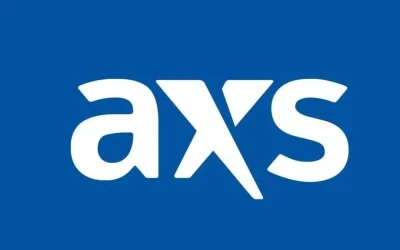The Federal Trade Commission announced Tuesday its final “Junk Fees Rule” which will make prices including fees for things including event tickets and hotels mandatory. The FTC has been working towards such rulemaking for years, and appears poised to see the rules take effect in early 2025, depending when its rule is published in the Federal Register.
“People deserve to know up-front what they’re being asked to pay—without worrying that they’ll later be saddled with mysterious fees that they haven’t budgeted for and can’t avoid,” said FTC Chair Lina M. Khan. “The FTC’s rule will put an end to junk fees around live event tickets, hotels, and vacation rentals, saving Americans billions of dollars and millions of hours in wasted time. I urge enforcers to continue cracking down on these unlawful fees and encourage state and federal policymakers to build on this success with legislation that bans unfair and deceptive junk fees across the economy.”
1. People deserve to know upfront what price they’re being asked to pay, without worrying they’ll later be hit with mystery fees they can’t avoid.
Today @FTC finalized a rule to ban these junk fees for short-term lodging and live-event ticketing.https://t.co/zwLEe3BUxL
— Lina Khan (@linakhanFTC) December 17, 2024
In practice, the rule will simplify the process of shopping for tickets to live events by changing the way the pricing can be displayed. Currently, companies advertising tickets for sale to events can choose to either show the actual ticket price up front (an “all-in” display), or advertise one price, then add various fees to that price during the transaction process. Those so-called “junk fees” will no longer be allowed, instead requiring the “clear and conspicuous” display of the true total price inclusive of all mandatory fees whenever the price is displayed.
Ticketing companies have largely supported a move to “all-in” pricing, provided it is a rule that applies across the board to everyone. Several states already require prices to be displayed including all fees, but the FTC rule will bring this requirement to all sales to American consumers across the country.
“TicketNetwork has long supported an industry-wide rule requiring true ticket price transparency for consumers and applaud the FTC’s rule that will bring that to fruition,” says TicketNetwork Director of Communications Sean Burns. “Millions of American consumers will benefit from being able to see and understand the true price of a ticket, regardless of where they are shopping for it.”
Live Nation Entertainment also announced its support for the FTC’s rule, trumpeting its shift to displaying prices including all fees – though that shift only applied to events, venues, and festivals all under Live Nation’s control rather than an across-the-board move to “all-in” pricing for all of Live Nation and Ticketmaster’s vast catalog of events across multiple marketplaces. Ticketmaster recently agreed to settle a class action lawsuit in Canada over alleged violations of that country’s price transparency regulations.
“We’ve led the industry by adopting all-in pricing at all Live Nation venues and festivals and applaud the FTC’s industry-wide mandate so fans will now be able to see the total price of a ticket right upfront no matter where they go to see a show or buy a ticket,” the company’s statement published Tuesday reads.
Once the regulation is published to the Federal Register, it will become active 120 days later. That means publication before the new year would bring the rule into play by May 1, 2025.
One question that does demand some further exploration is – what does and does not count as a live event for the purposes of the new rules being issued? Live event is a very general term. At one end, it’s easy to define – NFL games, Taylor Swift concerts, Broadway shows aren’t going to escape the requirement for price transparency on their ticket sales. But there is ample grey area – conventions or trade shows with a live panel or entertainer performance as part of their admission? Restaurants with musicians that require minimum food and beverage purchase? Museum programming? Immersive athletics events like glow runs?
There is also a continued need for significant further improvement to the live event ticket purchasing experience for consumers, since “all-in” pricing only addresses one small (and largely uncontroversial) segment of it.
“We hope that efforts to improve the consumer experience for buying tickets continues with much-needed reforms like transparency on ticket availability, bans on anti-competitive ticket transfer restrictions, and mandatory reporting of alleged violations of existing laws regarding the use of “bots,” says TicketNetwork’s Burns. “All of these consumer-first updates to the ticketing market have been proposed by forward-thinking legislators at both state and federal levels despite fierce lobbying opposition from the powerful companies that benefit from such harmful practices.”
Federal Trade Commission Rule on Unfair or Deceptive Fees (full text)



